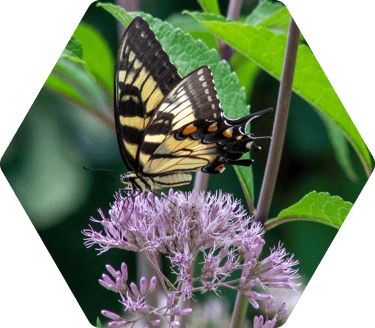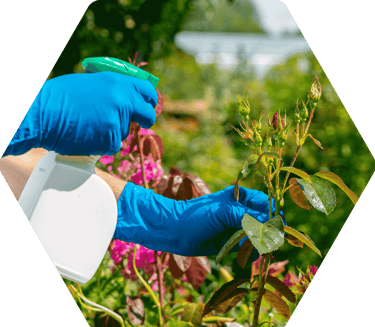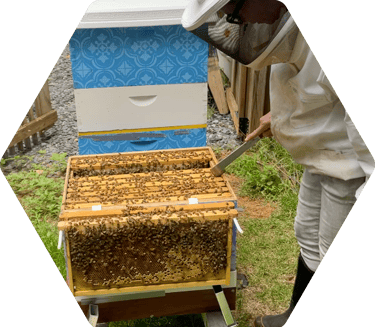Get 20% off with promo code HOLIDAYBUZZ

Nurture Nature,
Protect Pollinators
Besides bees, there are over 100,000 invertebrates that act as pollinators.
Butterflies, moths, wasps, flies, beetles, and over 1,000 mammals, birds, reptiles, and amphibians are pollinators.
Pesticides, habitat loss, invasive species, and disease are largely to blame for pollinator decline worldwide.






Small changes in our backyards can help pollinators survive and thrive
Provide habitat for pollinators
Plant native flowers that bloom at different times. Nectar-rich flowers attract both insect pollinators and hummingbirds. Short on space? No spot is too small for pollinators! Window boxes, small potted plants, and even strips of grass between your sidewalk and the street are perfect places for pollinators to recharge.
Avoid pesticides
Pesticides not only affect people but also pets and pollinators. They are a main source of toxicity in pets, causing symptoms such as vomiting, diarrhea, seizures, trouble walking, drooling, nausea, and tremors. These same pesticides that make pets ill also contaminate the air, urban streams, groundwater, and soil, and harm plants and trees that pollinators rely on for nectar and reproduction. Pesticides, habitat loss, and disease are largely to blame for pollinator decline worldwide.
Support the Bee(keepers!)
This is certainly one of the sweetest ways to support pollinators. Skip a trip to the supermarket and treat yourself to a jar of honey directly from a local beekeeper. Spot a swarm in your yard or neighborhood? Call up local beekeepers to move the bees rather than opting for an exterminator.
Leave fallen leaves alone
Dead leaves and plant material are food and shelter for pollinators in the winter. Please resist the urge to rake your leaves in the fall or rake them to another area in your yard and let them support pollinators throughout the winter season.








MADE BY BEES
Atlanta, GA


